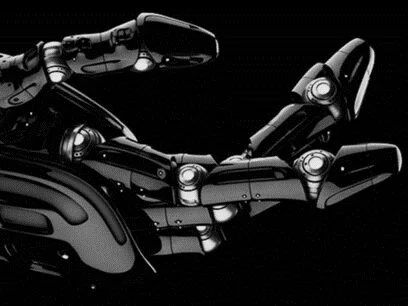Its both mesmerising and a little creepy watching the robotic arms of Moley Food’s Robot Chef meticulously prepare a meal for two, complete with a little love heart made with sauce as a romantic touch. Imagine being able to have literally any meal whipped up in your home kitchen or at the office without ever having to peel a potato or whisk an egg. This is the promise of automation in the kitchen. What does it mean and what impacts might it have?
According to Moley Food they are on track to release a consumer version of their Robotic Kitchen this year. This means they will be impacting both the commercial kitchen and the home kitchen markets. Let’s consider the home kitchen market first.
What’s For Dinner?
Getting good meals to the table in most homes requires three key parts: food ingredients; appliances to prepare and cook the ingredients; and someone who uses those ingredients and appliances - the ‘chef’. For the ingredients and appliances component, vast supply chains, thousands of products and millions of jobs are involved in helping you make each meal. And there are many other actors involved in helping you including cooking classes, Youtube channels, cook books and TV shows. Moley Food’s technology potentially impacts each of these:
partnerships with on-demand ingredients delivery to support real-time ordering based on your last minute meal selection. Could Amazon partner with Moley to support a new, highly customised ingredients order experience where the Robot is the customer?
competing against traditional appliance brands and displacing them from the home - for ever. Should Miele try to build their own version? Should the partner for promotion and distribution?
reducing the demand for tools and courses that help make us better cooks - because the robot will do it for us. A key part of the Robot Kitchen value proposition is the idea of a Spotify-like meal recipe library with meals from chefs around the world. Moley are potentially creating a new category of subscription by integrating their hardware, AI and food libraries into one FaaS proposition (Food as a Service - I made that up!).
Food as a Service - beyond Uber Eats to anything I want, anytime, from my own kitchen.
Transforming Commercial Kitchens
On the commercial kitchen front the opportunities are significant and potentially game changing:
Large industrial kitchens might accelerate their ability to produce to a 24/7 roster, also producing unlimited options depending on their client’s needs.
Hospitals, schools and nursing homes might transform their food menus through a combination of unlimited production capability and lower marginal costs. Imagine the impact in schools systems in the USA for example where an ongoing challenge is good nutrition at affordable prices.
Ghost kitchen penetration might accelerate through lower marginal cost scaling together with no restrictions on the type of meal that can be ordered and delivered.
As automation like Moley takes off we can see there are multiple threats to incumbents in the ‘meal’ space, and yet multiple opportunities for new partnerships and services that build on this exciting technology. While the Robot Kitchen seems capable of making the perfect meal through precise actions and perfect recipe usage, it may not yet have that instinctual edge that many great cooks have. But with the fast rate of technology evolution, it won’t be long before it uses its ‘nose’ as much as its nouse to cook the perfect meal.
Cyrus Allen is a Founding Partner at CapFeather Global with more than 2o years of corporate experience locally and internationally with Ericsson, Sony Ericsson, Telstra and ANZ, together with nearly 8 years senior consulting and advisory Customer Strategy and Customer Experience Innovation. He has held three non-executive board directorships and has been involved in start ups in the aged care and delivery technology sectors.


